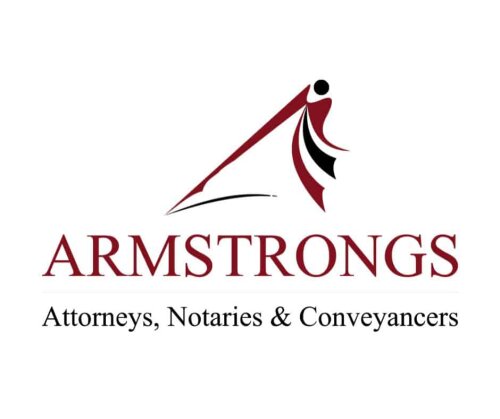Best Renewable & Alternative Energy Lawyers in Gaborone
Share your needs with us, get contacted by law firms.
Free. Takes 2 min.
List of the best lawyers in Gaborone, Botswana
About Renewable & Alternative Energy Law in Gaborone, Botswana
Renewable and alternative energy law in Gaborone, Botswana, focuses on the legal frameworks that support the creation, development, and regulation of energy sources such as solar, wind, hydro, and bioenergy. Botswana, with its abundant sunshine, has shown a commitment to expanding renewable energy usage to meet growing energy demands, reduce dependence on imported fossil fuels, and ensure sustainable development. The legal landscape here is shaped by national policies as well as municipal bylaws specific to Gaborone, aiming to create an enabling environment for investment while safeguarding environmental and community interests.
Why You May Need a Lawyer
Engaging in renewable and alternative energy projects often involves complex legal matters. You may need a lawyer in situations such as:
- Obtaining licenses or permits to develop solar or wind power installations
- Negotiating power purchase or supply agreements with the Botswana Power Corporation or private entities
- Handling disputes arising from land use, environmental impact, or project financing
- Compliance with safety, environmental, or building regulations specific to Gaborone
- Protecting intellectual property related to renewable energy technology or processes
- Navigating foreign investment rules for international investors entering the Botswana renewable energy market
- Advising on tax incentives, customs exemptions, and government grants offered to renewable projects
A lawyer can help avoid costly mistakes, ensure regulatory compliance, and protect your interests when dealing with complex renewable energy projects.
Local Laws Overview
The regulatory framework for renewable and alternative energy in Gaborone is primarily defined by national statutes, ministerial regulations, and city bylaws. Key elements include:
- The Botswana Energy Regulatory Authority regulates energy production, distribution, and tariffs, and issues licenses to energy service providers.
- The Electricity Supply Act governs the general production and supply of electricity, including the integration of independent power producers.
- The Renewable Energy Policy of Botswana outlines strategic incentives, quality standards, and investment promotion for renewable energy projects.
- The Environmental Assessment Act mandates environmental and social impact assessments for new renewable energy developments to ensure sustainable practices.
- Land usage for energy projects is regulated by local planning authorities in Gaborone, and lease or acquisition of land for installations such as solar farms requires adherence to urban planning regulations.
- Incentives such as tax holidays and customs duty exemptions may be available to approved renewable energy projects under investment promotion laws.
It is essential for investors, developers, or homeowners wishing to take advantage of renewable energy to familiarize themselves with these laws for a smooth and compliant project implementation.
Frequently Asked Questions
What are the main types of renewable energy sources supported in Gaborone?
The most supported forms include solar energy, wind energy, and biomass. Solar is particularly favored due to Botswana's high solar irradiation levels.
Do I need a permit to install solar panels at my home or business?
Yes, residents and businesses usually require approval from local authorities in Gaborone, as well as possible notification or permit from the energy regulator, depending on the scale of the system.
Are there incentives for investing in renewable energy in Botswana?
Yes, the government offers incentives such as tax breaks, customs duty exemptions, and feed-in tariffs for qualifying renewable energy investments.
How are power purchase agreements regulated in Botswana?
Power purchase agreements are subject to approval by the Botswana Energy Regulatory Authority, which ensures terms are fair and compliant with local laws.
Can foreign entities invest in the renewable energy sector?
Yes, foreign investment is allowed, but certain licensing and ownership requirements must be met. Legal advice is important to navigate these requirements.
Is there a requirement for environmental assessments?
Yes, all large renewable energy projects must undergo environmental and social impact assessments, especially within the Gaborone area.
How does Botswana regulate feed-in tariffs or selling power back to the grid?
Botswana has developing policies which allow approved independent power producers to sell excess power back to the national grid, but specifics can depend on project size and location.
What legal risks should a developer be aware of?
Developers should consider risks related to land acquisition, regulatory compliance, environmental impact, financing terms, and changes in policy frameworks.
Can communities benefit directly from local renewable projects?
Many policies encourage community participation through job creation, local ownership possibilities, and community engagement processes in project planning.
Who regulates disputes in the renewable energy sector?
The Botswana Energy Regulatory Authority handles disputes between licensees, the public, and other stakeholders in the energy sector, often as a first point of mediation.
Additional Resources
If you need further information or assistance, consider reaching out to the following resources:
- Botswana Energy Regulatory Authority (BERA) - the main energy sector regulator
- Ministry of Mineral Resources, Green Technology and Energy Security - responsible for national policy and initiatives
- Gaborone City Council - for local permits, planning, and building requirements
- Botswana Investment and Trade Centre (BITC) - for information about incentives and investment procedures
- Environmental Affairs Department - for guidance on environmental assessments and compliance
- Local legal professionals and law societies specializing in energy law
Next Steps
If you are considering a renewable or alternative energy project in Gaborone or need help with a legal challenge in this sector, follow these steps:
- Review your project’s scope and identify any applicable legal or regulatory requirements.
- Gather all necessary documents, including business plans, permits already acquired, and any correspondence with authorities.
- Consult with a lawyer who specializes in energy and environmental law in Botswana for tailored advice.
- Engage proactively with relevant authorities, such as BERA and the city council, to ensure compliance from the beginning.
- Assess and apply for any available government incentives that may benefit your project.
- Continue to stay informed on changing laws and best practices in the Botswana renewable energy sector.
Seeking professional legal advice early can help you identify and address legal issues before they become costly obstacles, ensuring your renewable energy venture in Gaborone is successful and sustainable.
Lawzana helps you find the best lawyers and law firms in Gaborone through a curated and pre-screened list of qualified legal professionals. Our platform offers rankings and detailed profiles of attorneys and law firms, allowing you to compare based on practice areas, including Renewable & Alternative Energy, experience, and client feedback.
Each profile includes a description of the firm's areas of practice, client reviews, team members and partners, year of establishment, spoken languages, office locations, contact information, social media presence, and any published articles or resources. Most firms on our platform speak English and are experienced in both local and international legal matters.
Get a quote from top-rated law firms in Gaborone, Botswana — quickly, securely, and without unnecessary hassle.
Disclaimer:
The information provided on this page is for general informational purposes only and does not constitute legal advice. While we strive to ensure the accuracy and relevance of the content, legal information may change over time, and interpretations of the law can vary. You should always consult with a qualified legal professional for advice specific to your situation.
We disclaim all liability for actions taken or not taken based on the content of this page. If you believe any information is incorrect or outdated, please contact us, and we will review and update it where appropriate.













